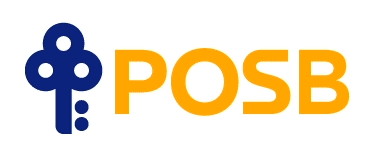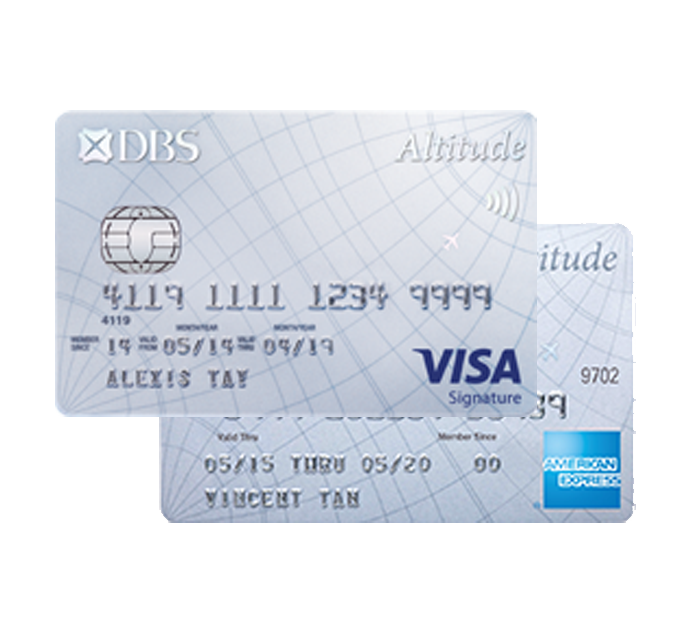Conventional wisdom says to bring along enough money for your trip. But sometimes, your best estimates fail, and you need to exchange currency abroad.
What are the travel precautions to take? Here are five red flags of dishonest money changers:
1. They offer zero percent commission
While many money changers boast that they are “commission free” or charge “zero percent commission”, it often means nothing at all. This is because money changers make their money from the spread, which is the difference between their cost price and the rate that they charge you.
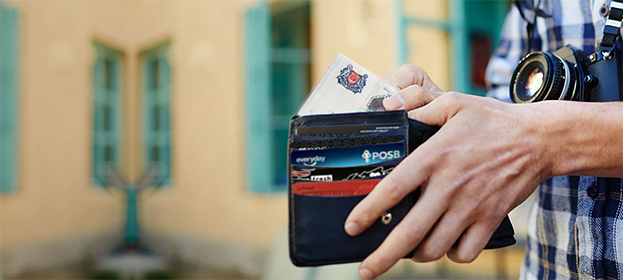
For example, you want to change US$100. The ‘live’ conversation rate is USD 1 = SGD 1.43, and the money changer might quote you a rate of USD 1 = SGD 1.47. They would earn S$4 from the transaction.
Honest money changers charge a reasonable spread, while the sneaky ones boast about being commission-free, but charge you a higher spread.
TIP: Compare these commission-free rates with the ‘live’ rates on your digibank app or the POSB website.
2. Their calculators are rigged
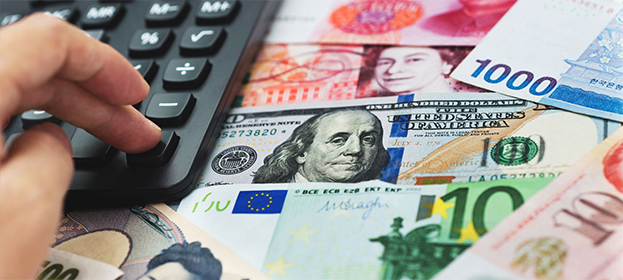
Most people don’t bother to check the money changer’s calculations. This makes it easy for the sneaky ones to cheat you, especially when dealing with large denominations.
For example, by using the ‘Memory Recall’ function instead of = , a scammer can make any desired amount appear on the screen. So, don’t trust the numbers blindly just because you saw them being punched in.
TIP: Double check the numbers using the calculator on your own smartphone.
3. They distract you and double-count your money
This is the oldest form of money exchange scam and relies on a combination of fast-talk and faster-hands. You’re most likely to encounter the “money shuffle” scammer among the back-alley money changers, such as small souvenir shops or convenience stores that double as money changers.
What may happen is their accomplices make small talk while the money changer counts piles of small notes. They excuse their lack of large denominations due to their being “a small business”. While you’re distracted, they sneakily move the notes around and double-count them.
TIP: Always re-count the money yourself, especially if you feel that you have been distracted. Alternatively, leave and find another money changer.
4. They use unsuspecting tourists to circulate fake currency
Because you’re not familiar with the colour, size, and feel of the real notes, that makes you a big target compared to the locals.
TIP: Corrupt taxi drivers and fraudulent money changers are the two most common ways to circulate fake currency.
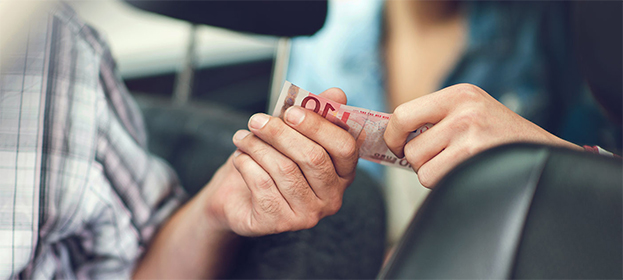
The standard tactic of such money changers is for someone to intercept you, promising a better exchange rate just as you’re about to change your currency. Any of these could happen if you accept the stranger’s offer:
- The scammer mixes in lookalike notes from a worthless currency;
- The scammer replaces the big denomination notes with colour copies;
- The scammer includes notes that do not exist, and tells you it is newly issued, e.g. a US$500 note even though there is no denomination above US$100 in US currency.
You lose money from these scams. Even worse, they could get you into serious trouble with the law! You can be arrested or fined when you unknowingly try to use the fake notes.
TIP: Always familiarise yourself with a country’s currency before travelling. If you’re offered a deal that’s too good to be true, it probably is. Walk away.
5. They “accidentally” give you the wrong rate
Some money changers will quote one rate but give you another. For instance, when they “accidentally” confuse the buy and sell rates. This scam often happens when there are long lines. In the rush, you are more likely to gather up your money quickly without bothering to check.
When you exchange S$ for US$ for example, you are buying US$. As such, look for their selling price under the “we sell” column on the money changer’s board.
TIP: Work out the amount you expect to get using your phone’s calculator. If you haven’t checked the money, always be sure to keep the receipt.
That’s so troublesome!
If this is too troublesome, consider handling money digitally. You dodge the currency exchange scams, and avoid being a target for robbery.
The safest ways to exchange money are through your bank. Just remember to activate your card for overseas purchases! Furthermore, if you have a debit card that is linked to a foreign currency wallet such as the My Account, you may even be able purchase items with no foreign exchange fees.
But if you need foreign currency now, use the five tips above to spot the dishonest money changers and avoid being “eaten” on your holiday!
